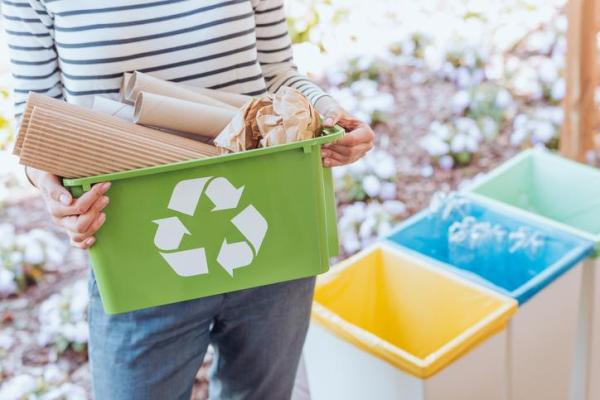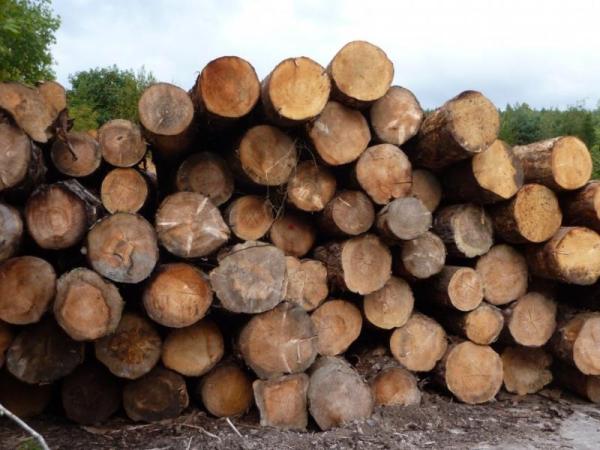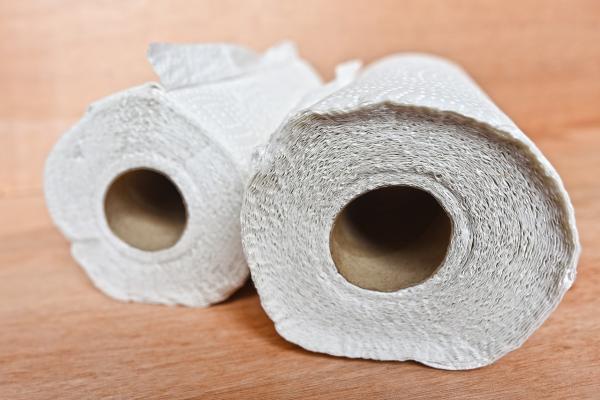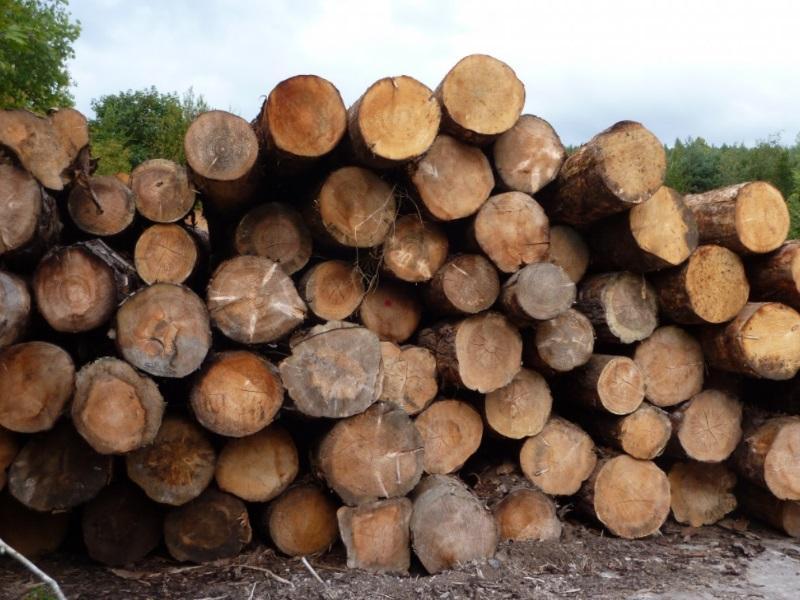Are Paper Towels Recyclable?


Despite the fact most of us will write more on our phone than a piece of paper, our consumption of the material has not waned. In fact, our use of paper continues to grow, with projections suggesting we will be using as much as 476 million tones by 2032[1]. Although paper product packaging is often seen as being more sustainable than other materials, our global consumption is problematic. There are also many other ways we use paper, leading us to be concerned over how we can reduce our ecological impact.
At thedailyECO, we want to understand how to reduce the impact of climate change. Although it is only one small part of a larger endeavor to do so, recycling products in the home can help reduce waste. In this context, we want to know are paper towels recyclable?
The environmental price of paper towels
Paper and paper towel manufacturing and forest development are closely related. The paper industry is one of the largest destroyers of forests on the planet. The paper manufacturing industry not only fells trees to make paper, but it requires a lot of energy to do so. Once the trees are harvested, they will then need to make the paper in factories which use a lot of water and electricity, as well as emit pollutants in doing so.
The pulp and paper industry is ranked fifth in energy consumption within the industrial sector. The paper industry uses more water per ton of product produced than any other industry. In addition, the paper industry is among the largest producers of air and water pollutants, including certain greenhouse gases.
It is estimated that up to 40% of the wood felled on the planet is used for the paper industry. About 25% of which is used directly for the production of paper and the other 15% for by-products of other sectors (sawmilling, manufacturing of boards, etc.).
The sources of the raw material to make paper are:
- 17% comes from primary forests (virgin forests)
- 54% secondary forests
- 29% of forest plantations
In order to supply this production, some forests and natural ecosystems are replaced by fast-growing trees. These types of trees use large amounts of herbicides and toxic chemical fertilizers in their management. Many of these species are harmful to the ecosystem to which they are introduced.
Harmful chlorine products such as chlorine gas or chlorine dioxide, are used in the paper bleaching process. Elemental chlorine free (ECF) bleaching processes can help reduce the impact on the environment, but they still cause pollution. Among the waste generated in this process are organochlorine compounds such as dioxins, which harm the health of citizens and the planet.
According to the EPA, paper consumption of the average person per year is more than 700 lb[2]. Although they only account for 5% of the global population, Americans use 40% of the world's paper. Of this total amount, it is estimated that around 35% is wasted.
While we don't know exactly how many paper towels are used each year per person, we do know that Americans are the number one consumer of paper towels across the globe[3]. Projections suggest this is a trend which is not slowing down any time soon.

Are there recyclable paper towels?
Different types of paper are made in different ways. This accounts for the fact we can have glossy, matt, thick, thin, watermarked and many other different types of paper. Despite their varied attributes, all paper is made up of individual fibers. How many fibers will influence the thickness and other qualities.
Unfortunately, paper towels are not recyclable. There are two main reasons for this:
- Manufacturing: the length of the fibers used to make paper towels is too short for recycling. In addition, toxic resins, inks and other treatments used to create paper towels mean the product is unable to be recycled.
- Uses: another factor when it comes to recycling paper towels is their use in homes and various industries. Since they are known for their absorbent power, paper towels are used to soak up various spills. Once they become contaminated with whatever it is we are using the paper to clean, they are not recyclable.
Now we know there are no recyclable paper towels, we need to look at ways to reduce our reliance on the paper towels we do use. This involves paper towel alternatives and other methods.

How to reduce paper towel waste
Since paper towels cannot be recycled in the traditional way, we need to find other ways to reduce wastage. For this reason, we suggest using the following tips to help reduce our reliance on paper towels:
- Use cloths: although there are no reusable paper towels, there are alternatives which can be reused. Cloths made from certain material can help us reduce and reuse. They can be washed out between uses. This does mean we use more water when cleaning and some wash cloths can be made from unsustainable materials, but they are a better option overall.
- Use old clothes: instead of buying cloths to use for household cleaning, we can cut up old clothes so they can be used in the same way as cloths. This also helps us to avoid waste since many old clothes will be dumped.
- Wash in a wet room: if you know you are going to make a mess, do it somewhere it can be cleaned easily. This may involve hosing off an area. It is not suitable for all households and all tasks, but it can be used on certain occasions.
- Buy cloth napkins: although we have discussed using paper towels to clean spills, they are also used for individuals when eating. Instead of a roll of paper towels, everyone in the home can have their own napkin which can be washed.
- Composting: if you still need to use paper towels, you may be able to compost them to reduce their environmental impact. This can only be done when the towels are used to clean up organic matter. We cannot compost them if they have harmful chemicals or other products which can damage the compost heap.
How to compost your paper towels
Depending on where you live, you may have a compost provided by your local government. If you have access to a garden, you can also make your own compost pile. For those who are unable to make a garden compost, you can make a bin in the home. Use a compostable bag to line the bin and place your organic waste inside. You may be able to offer this to other people who do have a compost or go to your local recycling point.
As stated above, not all paper towels can be composted. If they have too much bacteria or inorganic material, it can seriously affect the ecosystem of microorganisms which constitutes a compost heap. Only compost paper towels if they are:
- Clean
- Free from harmful chemicals
- Soiled with organic matter
- Soiled with vomit
You should not compost paper towels that are:
- Saturated in grease
- Soiled with harmful chemicals
- Soiled with dog or other animal feces
It is best if you tear up your paper towels before composting. They can then be more easily broken down. Any paper towels which do not meet the composting requirements should be thrown in the regular trash.

If you want to read similar articles to Are Paper Towels Recyclable?, we recommend you visit our Recycling and waste management category.
1. Tiseo, I. (2022). Paper consumption worldwide from 2021 to 2032. Retrieved from:
https://www.statista.com/statistics/1089078/demand-paper-globally-until-2030/
2. EPA. (2022). Identifying Greener Paper. Retrieved from:
https://www.epa.gov/greenerproducts/identifying-greener-paper
3. Pinkser, J. (2018). Americans Are Weirdly Obsessed With Paper Towels. Retrieved from:
https://www.theatlantic.com/family/archive/2018/12/paper-towels-us-use-consume/577672/







